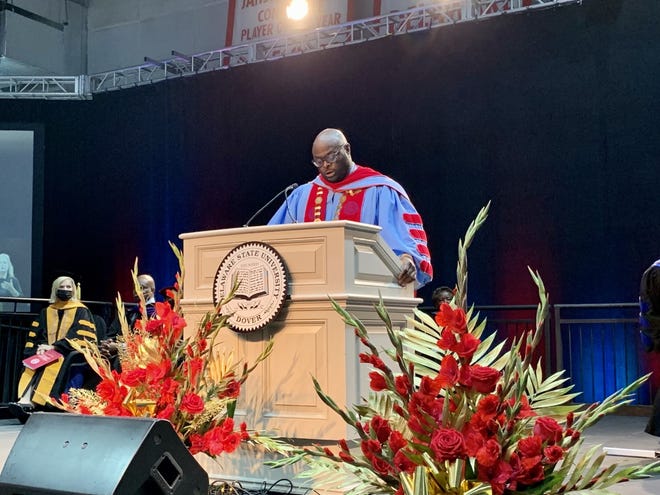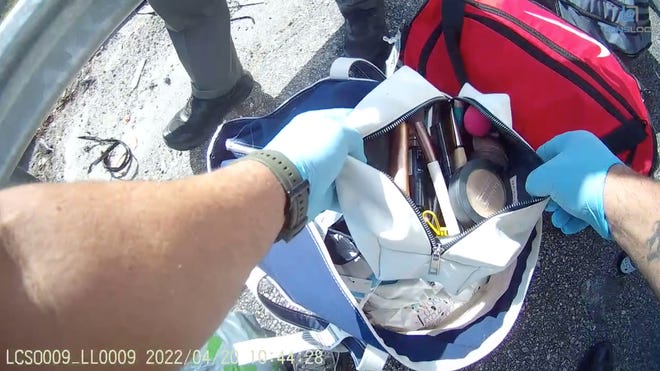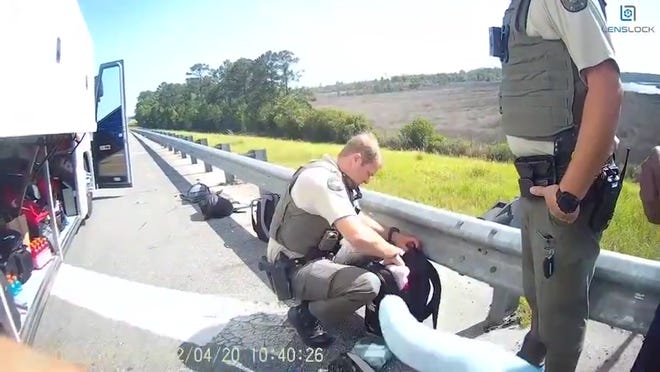State NAACP leaders want to know why Delaware State University remained silent for nearly three weeks after Georgia deputies stopped and searched a charter bus and personal belongings of its womens lacrosse team on April 20.
DSU said nothing publicly until after the student newspaper published a video and news article on May 4 revealing the incident, which has raised questions of racial profiling as well as debatable police practices.
Richard Smith, president of the Delaware NAACP, said DSU’s delay in reporting the incident allows for police to continue the questionable behavior.
“The NAACP is concerned that this incident took place on April 20, 2022, but it was not made public until it was reported in the student newspaper last week,” reads a Wednesday statement by the Delaware State NAACP Conference of Branches. “Subsequently the university made a statement on May 9, 2022.
“The NAACP subscribes to the theorem that ‘justice delayed is justice denied.’ In that regard, the responsibility to protect students should not be abdicated to the students themselves.”
DSU President Tony Allen told Delaware Online/The News Journal on Thursday that the school has been investigating the traffic stop “since the incident happened.” And while he said DSU was “deliberate” in helping the student-athletes get their legal recourse, members of the lacrosse team interviewed by the newspaper said they were unsure of exactly when the school learned about the situation or its severity.
SUPPORT FOR PLAYERS:NFL Players Association director calls for police accountability in DSU graduation speech
Allen said DSU did not want to say anything publicly until they “understood [their] legal recourse.”
He did not elaborate on what this recourse would be, but said “the merits of this particular situation seem to speak in [the school’s] favor.”
Despite saying it wanted to pursue its legal recourse before speaking, the university did issue a statement on Wednesday quoting Allen saying that he’d spoken to the sheriff of Liberty County, Georgia, where the bus was stopped and searched.
DSU PRESIDENT SPEAKS:Tony Allen says sheriff’s comments, bodycam images raise questions
“It has become abundantly more clear that this incident must be investigated by objective, external authorities. We continue to push forward toward that objective,” Allen wrote, ending his five-paragraph statement.

DSU spokesman Carlos Holmes said the school wanted to act “methodically” in its response to the traffic stop, and did not want to involve the public until after they knew all the facts. He said the university planned to release information about the incident “eventually,” but there was no specific date in mind.
Lacrosse bus stopped in Liberty County, Georgia
The DSU bus was stopped April 20 on I-95 in Liberty County, Georgia, after deputies said the vehicle had illegally traveled in the left lane. Several players’ bags were searched after a narcotics-sniffing K-9 dog provided what Sheriff’s Office deputies termed “an alert.”
Police body-cam video of the stop contradicts some of Liberty County Sheriff William Bowman’s statements about the incident, including that his deputies did not search personal items.

When asked why he believes the sheriff has not retracted this statement, Allen said he’s “not going to get into [Bowman’s] head as to how he’s thinking.”
CONTRADICTIONS:Body camera footage contradicts sheriff’s account of how deputies acted on DSU bus
Patrick Campanelli, a civil rights attorney in suburban Chicago and father of one of the few white lacrosse players aboard the bus, believes it was OK that the school did not immediately speak out about this incident.
With students heading into final exams and some preparing to graduate, Campanelli commended the school for trying to “minimize the shock to the students.”
“It may have caused the whole student body to feel that what they’re doing is worthless. Nothing is ever going to change,” he said. “I think they waited the appropriate time, and yes, they should have made a complaint to the sheriff on their own.”
But making a complaint to the sheriff’s department might have created an outrage as well, Campanelli said.

“It’s a lot easier for people to be a Monday morning quarterback on what actions should have been taken right away,” he said. “But harder to make the decisions when you are really watching out for young people who have so much on their plate.”
Questions on timing
The incident was first reported on May 4, in DSU’s The Hornet Newspaper and began gaining national attention shortly after. That was when questions about inaction began.
“They’re reacting because it came out on the news,” said Ron D. Handy Sr., first vice president of the NAACP Bear Chapter. “They should have reacted when it happened.”
Smith said the Delaware NAACP, along with the civil rights organization’s chapters from New Jersey, Pennsylvania and Georgia, are looking into why it took so long for the historically Black college to speak about the incident.
“The question is: Are our kids safe when moving around these states that seem to be red states,” he said.
The group is asking for a federal investigation into the matter.
After the story began making national headlines on Monday, Delaware’s congressional delegation issued a joint statement calling the situation “deeply disturbing.”
STRONG REACTION:Delaware State, state leaders ‘incensed’ after team bus stopped, searched in Georgia
Sen. Chris Coons’ office confirmed to Delaware Online/The News Journal that the senator was told about the incident Sunday night.
Delaware Attorney General Kathleen Jennings and Allen issued statements about the incident on Wednesday. Jennings said she wrote a letter on Tuesday to the U.S. Department of Justice requesting a civil rights review of the stop and search.
Jennings’ office said the attorney general learned of the incident on Saturday and contacted Allen that same day.
“That was a lot of pressure for kids,” Smith said. “Supposed those kids couldn’t take the pressure from the police department and decided to … hurt themselves or something like that.”
Allen said he was “a little concerned” about the focus on the delay between the traffic stop and the school’s official statement. Holmes was also “disheartened” by that, as well as what he said could be construed as DSU only deciding to make a statement after an article was published in the school paper about the incident.
By coming out earlier, Smith said the school could have joined forces with NAACP chapters who have many resources available to them.
“The night that happened, Tony should have opened up to community leaders or stakeholders to basically say, ‘I got problems,’ ” Smith said. “Because at the end of the day, the kids are going to come to us.”
“They’re coming to us now.”
Reporter Isabel Hughes contributed to this story.
Contact Esteban Parra at (302) 324-2299, eparra@delawareonline.com or Twitter @eparra3. Send story tips or ideas to Hannah Edelman at hedelman@delawareonline.com. For more reporting, follow them on Twitter at @h_edelman.